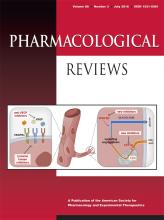Abstract
Cancer is a leading cause of death in many countries around the world. However, the efficacy of current standard treatments for a variety of cancers is suboptimal. First, most cancer treatments lack specificity, meaning that these treatments affect both cancer cells and their normal counterparts. Second, many anticancer agents are highly toxic, and thus, limit their use in treatment. Third, a number of cytotoxic chemotherapeutics are highly hydrophobic, which limits their utility in cancer therapy. Finally, many chemotherapeutic agents exhibit short half-lives that curtail their efficacy. As a result of these deficiencies, many current treatments lead to side effects, noncompliance, and patient inconvenience due to difficulties in administration. However, the application of nanotechnology has led to the development of effective nanosized drug delivery systems known commonly as nanoparticles. Among these delivery systems, lipid-based nanoparticles, particularly liposomes, have shown to be quite effective at exhibiting the ability to: 1) improve the selectivity of cancer chemotherapeutic agents; 2) lower the cytotoxicity of anticancer drugs to normal tissues, and thus, reduce their toxic side effects; 3) increase the solubility of hydrophobic drugs; and 4) offer a prolonged and controlled release of agents. This review will discuss the current state of lipid-based nanoparticle research, including the development of liposomes for cancer therapy, different strategies for tumor targeting, liposomal formulation of various anticancer drugs that are commercially available, recent progress in liposome technology for the treatment of cancer, and the next generation of lipid-based nanoparticles.
Footnotes
Des R. Richardson is the recipient of a National Health and Medical Research Council (NHMRC) Senior Principal Research Fellowship [1062607] and Project Grant [1060482]. Danuta S. Kalinowski is the recipient of an NHMRC RD Wright Career Development Fellowship [1083057] and NHMRC Project Grant [1048972].
- Copyright © 2016 by The American Society for Pharmacology and Experimental Therapeutics
PharmRev articles become freely available 12 months after publication, and remain freely available for 5 years.Non-open access articles that fall outside this five year window are available only to institutional subscribers and current ASPET members, or through the article purchase feature at the bottom of the page.
|






